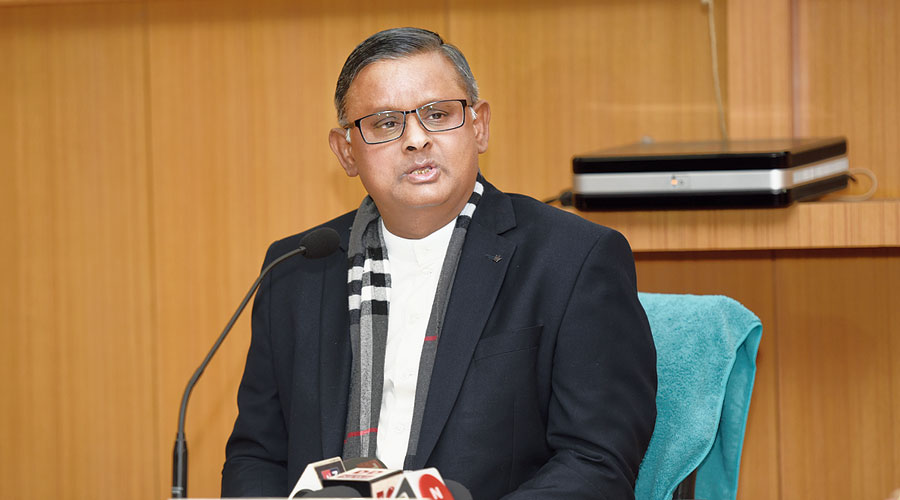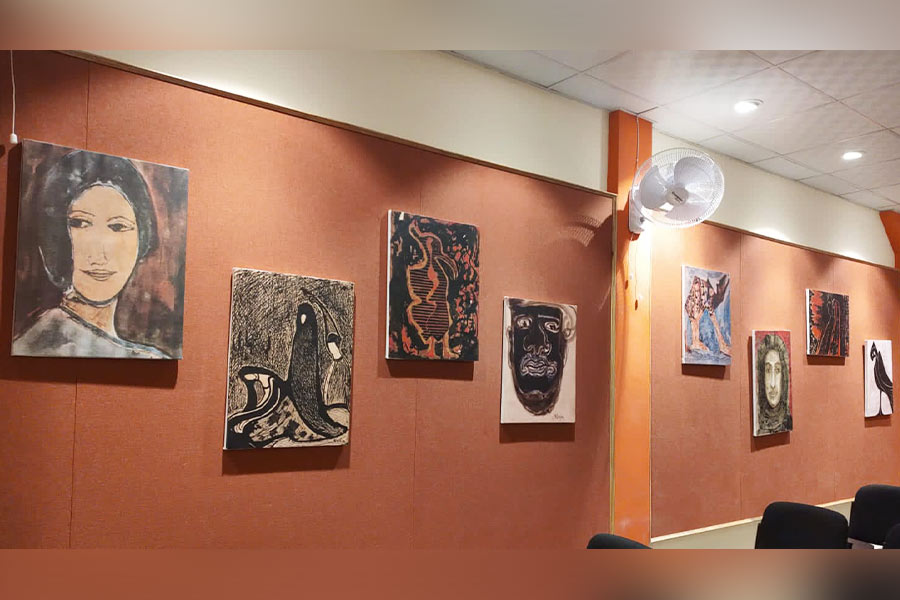From my three-decade-long experience as an educationist and administrator, it has struck me that comparatively more students now come to college with language abilities, reading habits, analytical skills, creative capacities and problem-solving competencies that leave something to be desired.
As I see it, this is a fundamental problem that needs to be urgently addressed.
I am struck by the lack of discussion on the subject. Why is it so? How does it affect the pedagogical processes currently in play? What can we do about it?
It may be premature to pass judgement on why it is so. Nor do I wish to cavil against the existing primary and secondary school systems. But it seems to me that something is not entirely right if more than a few students come to college and go on to university happy and content to take the well-trodden path of learning and reproducing by rote in routine and regular examinations.
This may serve the purposes of more than a few students, but does it not promote the culture of mediocrity, which is essentially self-perpetuating? These students, whatever their percentage number, can easily be lulled into complacent indifference with the assurance of guaranteed results at a minimum of personal responsibility.
There are most certainly many students who want and demand more, who look to be inspired, and challenged, who want to be taught how to teach themselves and be given the freedom to question and ask and think and form their opinions. More often than not they disappear into the woodwork of disappointment sucked as they are into a system that is often overwhelmed by uninspiring syllabi and over-populated classrooms.
Put very simply, these students want an education. Is this what they are actually given an education in the truest sense?
It may be argued that for our students to be able to compete, they must be marked commensurate with the way other universities mark. It may equally be argued that it is ethically incorrect to mark students better than they deserve for this will be misleading to future employers who might be swayed by paper manifestations of supposed quality and merit.
Arguments will counter each other but it can be agreed that education does not mean the granting or obtaining of a degree. It is rather the arduous and disciplined process by which the student acquires and earns a degree.
Twenty-five years ago, a first-class degree was a rarity, something earned only by the very best. Today it is not. Times may have changed, realities might have been reinvented, but the question keeps returning to trouble us: what is this education that we are imparting? Has it become a factory that churns out anonymous packages year after year? Does it burden and weigh down our students in one way or another? Is it interesting and challenging and does it best prepare our students for what is best in the world that they will assume and hopefully change?
As educators, we must introspect and measure,in full and proper detail, how and why and what we impart as education.
If things have to change and improve, they must change from the ground up perhaps with the focus on experiential learning to develop critical and independent thinking abilities. If successfully implemented, this kind of pedagogy will seed a new generation of empowered learners who will be ready for the challenges of higher education in the sense that they will arrive equipped with the skills and critical acumen that college education requires of a student.
As I see it, the future must be developed in terms of the focus and reshaping that education needs to be given if it is to keep pace with a post-modern world in which political and economic and cultural and regional and national and international narratives overlap and interface with each other. The student of the future must be equipped and prepared for this world, and our vision of the future of education must embrace this reality.
The focus of education must first be on reinventing and reimagining itself. I believe that it is time for university departments to be able to ideate syllabi with some degree of innovative independence keeping in mind local realities and market and industry requirements, and international standards, so that we can train and enrich students in their chosen discipline.
While syllabi can be made more interesting and relevant, the process of imparting that syllabus must be innovated. The teaching-learning process must be two-way to allow for interactive classes that demand greater involvement of students in terms of reading, preparation, class-participation and discussion, research, and so on.
The end purpose is to mould the student into a person who can develop the power of independent inquiry, original thinking, and analytical skills.
The notion of the teacher must therefore change. No longer can the teacher afford to be oracular. Rather teachers must understand their new role as facilitators, who open minds. This requires a special and dedicated effort from our teachers. No longer can we afford to be tied down by the past, or by worn out habits and practices. Doing away with chalk and talk may not be in the interest of all concerned but we must attempt a concerted effort to bring something new and fresh to the classroom, something that will excite ourselves and, therefore, our students.
The good teacher is simply one who takes the profession seriously, and who prepares for classes diligently, thinks and plans for each sequence of classes, encourages participation of students, and comes up with innovative and challenging evaluations over the period of the course.
Assessment is after all not merely sit-down periodic exams to test the students’ memory: assessment is itself a form and process of learning, the object of which is not to grade but to challenge the student to improve and to tap his potential for excellence.
Consequently, it behoves institutions to inspire and motivate their teachers to excel themselves by creating the best possible opportunities and facilities that are within the reach of the institution.
Serious thought must also be given to the very genuine problem of numbers. An over-populated classroom does not facilitate interactive learning and assessment. This is to essentially underline the fact that problems will beset our best attempts to improve the system. But it should not hinder or retard our attempts to move forward.
We have to think radically and bravely to find solutions in terms of real conditions: for example, class strength, teacher-student ratio, contemporary IT facilities, dedicated faculty, and surely, we must also think of making the profession more remunerative so as to attract talented people who might otherwise seek more lucrative opportunities elsewhere. Which reminds us that underlying it all is the question of financial resource.
While it is imperative that the government continues to provide necessary funding and even increase budget allocations for education, institutions must recognise their responsibility to canvas financial backing from alumni and industry, and devise strategies to convince both to provide the funding to increase capacities for institution building. Providing education, with an in-built capacitor of research, that is of genuine international standard will persuade industry to provide generous endowments which in turn will fuel further calibration of standards and achievements.
It is with such vision and will that the future can become the here and now.
Author is the principal of St Xavier’s College, Kolkata






